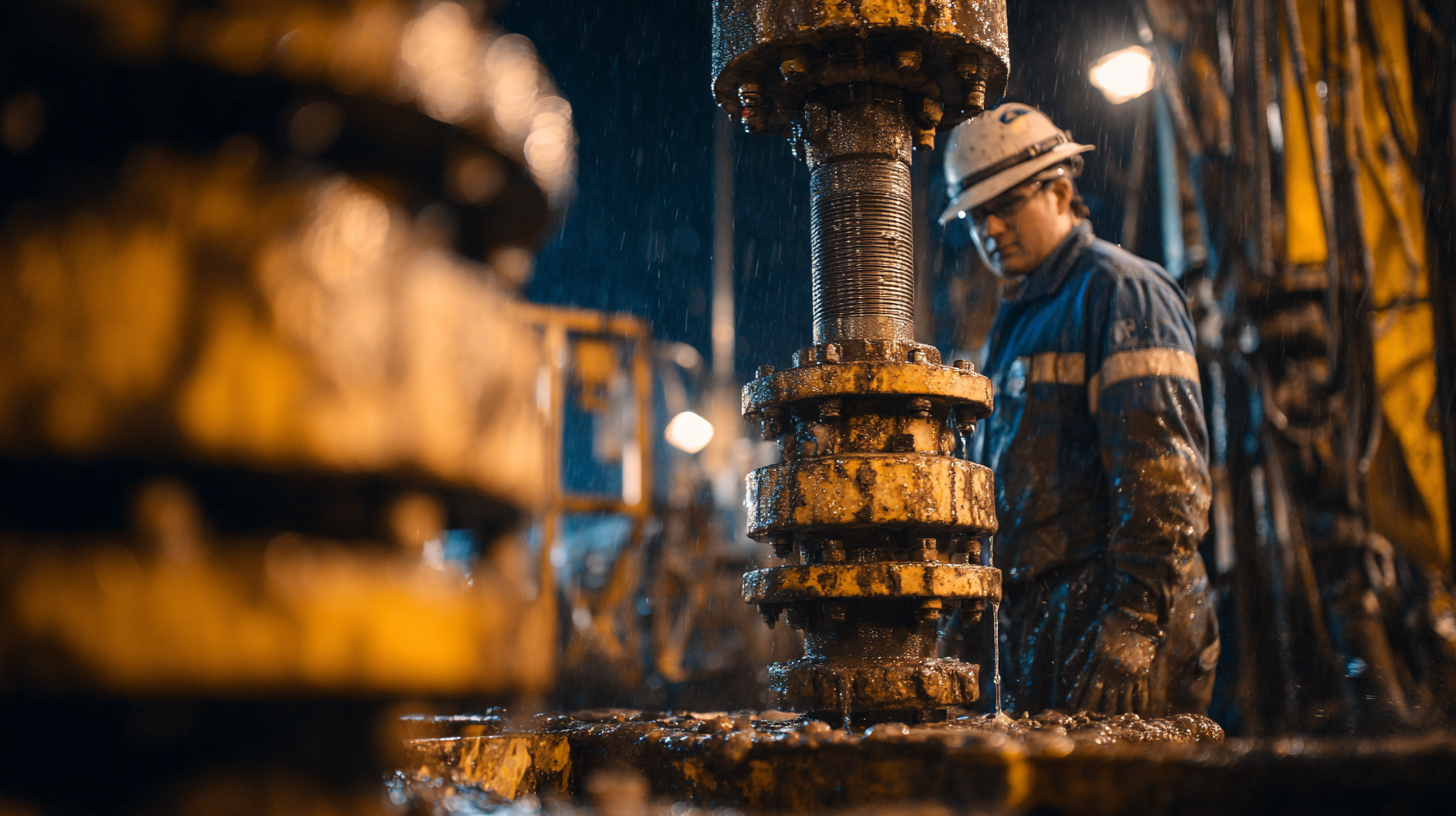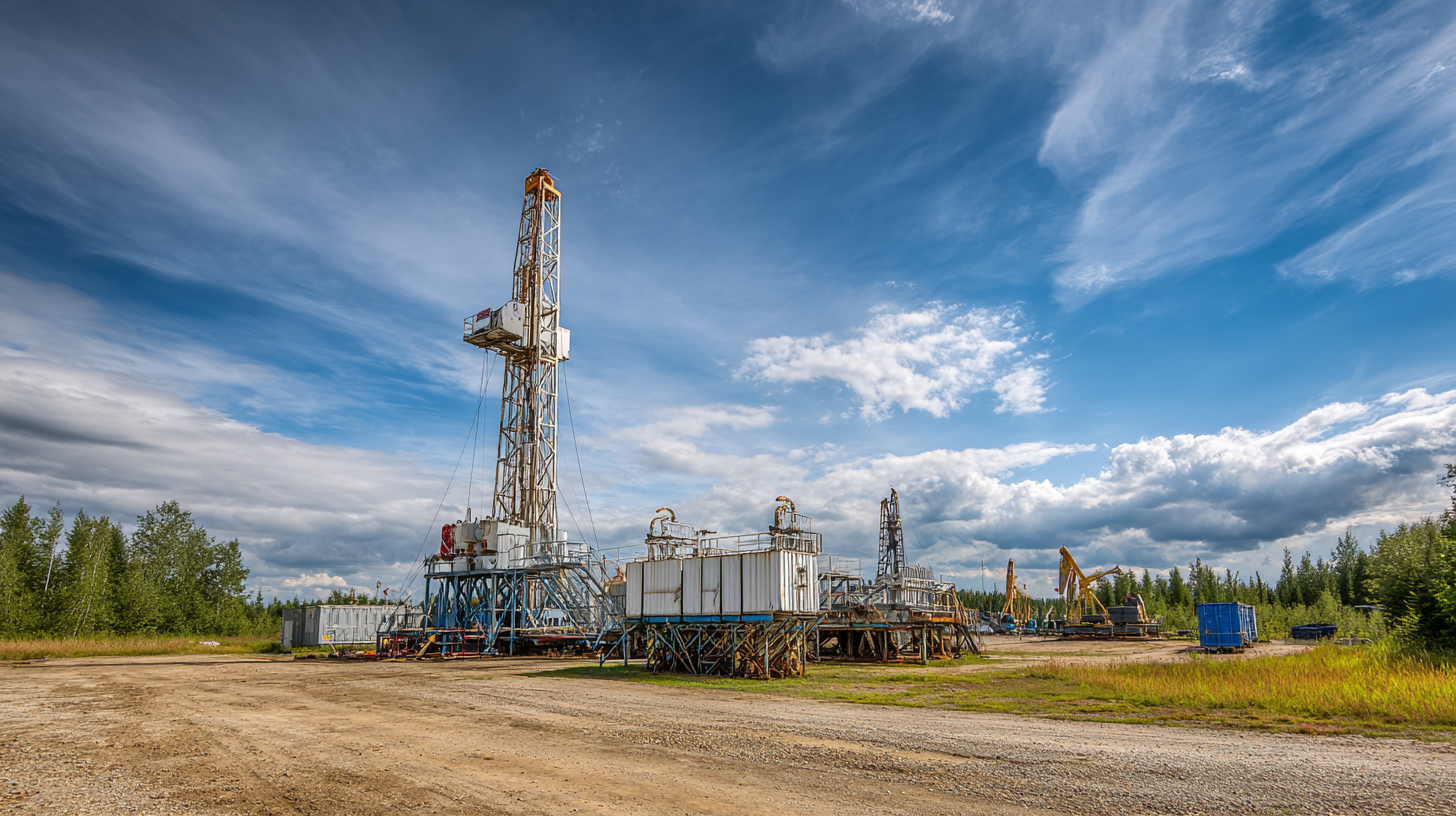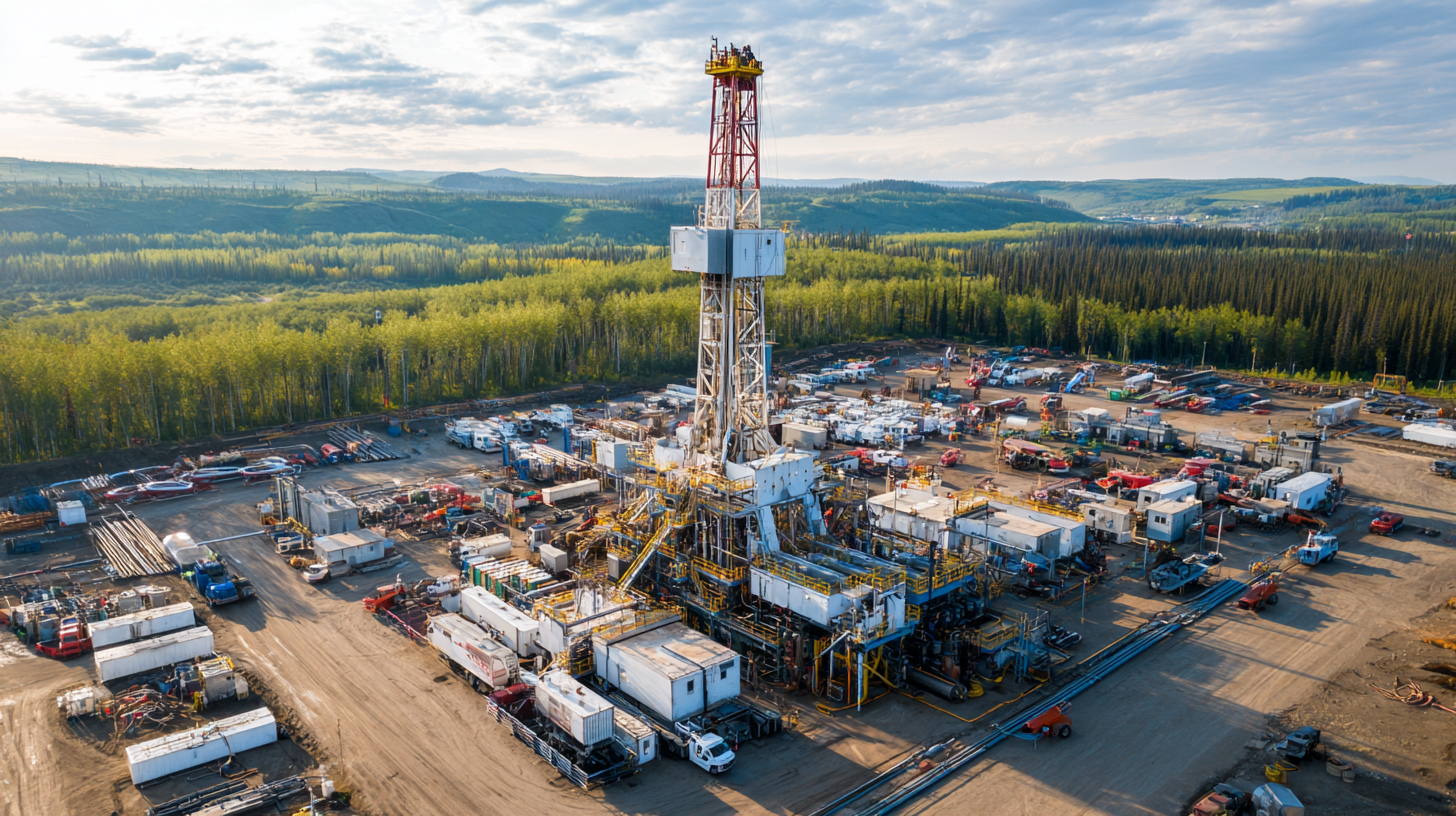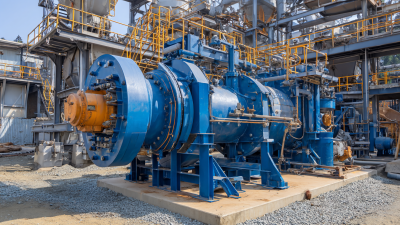strict management, quality first, quality service, and customer satisfaction


When it comes to modern oil production, Well Stream Dewatering really plays a crucial role in how efficient and profitable the whole operation is. A report from the International Energy Agency mentions that by just improving the way we separate and remove water from the oil, companies can boost recovery rates by up to 10%. Not to mention, it can also cut down on costs related to handling and treating water—a big plus.

As the oil and gas world keeps changing, companies are feeling more and more pressure to fine-tune their processes and do their part for the environment. That’s where Shanghai Shangjiang Petroleum Engineering Equipment Co., Ltd. comes in. They’ve been leading the charge with innovative designs for separation and filtration equipment that are specifically made for the industry. Their ongoing work on cyclone separation tech doesn’t just make Well Stream Dewatering easier and more efficient—it also helps promote more sustainable practices in oil production, tackling both economic and ecological challenges at the same time.
You know, stream dewatering really plays a vital role when it comes to boosting oil production, especially with modern extraction methods. Basically, it’s about separating water from the crude oil, which helps cut down the oil’s viscosity and makes everything flow a lot easier. According to a report from the Society of Petroleum Engineers, getting this step right can bump up oil recovery by around 10 to 15 percent in many fields. That’s a pretty big deal because operators are always looking to squeeze out every last drop while keeping costs in check, especially with the market being so competitive.
But it’s not just about getting more oil; dewatering also helps avoid some headaches like corrosion and scaling in the equipment. The National Petroleum Council mentioned that managing water properly could cut down operational downtime by about 20%, which means your systems stay reliable longer. Plus, keeping water cut levels just right doesn’t only protect the equipment—it also makes the whole operation safer. All in all, investing in the latest dewatering tech really prepares operators to handle changes in market demand and environmental rules. It’s all about staying ahead and running a more sustainable oil business.
Alright, so well stream dewatering is a pretty essential part of modern oil production. Basically, it’s all about removing that extra water from the fluids we extract. Doing this not only makes things run smoother downstream but also helps get the most hydrocarbons out of the well. There are a bunch of cutting-edge technologies out there now, all aiming to make the process more sustainable and efficient — industry demands are only getting higher, after all. Recently, an expert in the field shared three key tips to boost cake solids concentration—a pretty crucial aspect of dewatering. When you compare different dewatering techs, it's clear that choosing the right one can really make a difference in the quality of the final product.
On a broader note, tech like membranes are really making waves in water recovery and recycling across all sorts of industries. This shift points toward a more eco-friendly approach, especially since industries are feeling the heat to cut down on waste and recover resources better. Take mining operations, for example—many recent projects have shown that managing water effectively isn’t just about making things more efficient; it’s also about reducing environmental impacts. Bringing these kinds of technologies into oil production could be a game-changer, helping us move toward a future that's better for both the economy and the environment.
You know, when oil fields don’t do a good job with dewatering, it can cause some pretty serious environmental issues. It really stresses just how important it is to manage well streams properly. Research shows that if dewatering isn’t handled correctly, untreated produced water—stuff that’s been extracted along with oil—gets released into the environment. And that water can contain nasty pollutants like heavy metals and hydrocarbons. According to the EPA, improperly disposed of produced water can contaminate nearby water sources, which isn’t great for aquatic life or people’s drinking water. In fact, there are studies out there indicating that facilities skipping proper dewatering practices can face up to a 30% spike in environmental violations—that’s a big deal.
To avoid these kinds of problems, oil companies really need to invest in newer, smarter dewatering tech. Things like membrane filtration or advanced flocculation systems can make a huge difference in cutting down the amount of contaminants in that produced water. And hey, regular checkups and upkeep on these systems are key—they help ensure everything stays compliant with environmental standards.
Pro tip: Think about adding automated monitoring systems that give you real-time updates on water quality. They can help your team catch any issues early, so you can jump in and fix them before things get out of hand.
Getting better at dewatering isn’t just good for the environment—it also makes your operations run smoother. When those systems are in tip-top shape, companies often save around 20% on costs, mainly from less cleanup work and fewer fines from regulators.
Another tip: Regularly train your staff on best practices for dewatering. It’s a simple step that really helps foster a culture of environmental responsibility throughout your organization.
Getting rid of water from well streams is a really important part of modern oil production — it’s not just about the technical side, but it also brings some pretty big economic benefits that can make or break the whole operation. When water comes mixed with the oil during extraction, it doesn’t just mess with the oil quality; it also hikes up transportation costs. Too much water really drags down the value of the oil, so it’s crucial for producers to use smart dewatering techniques to keep profits in check.
On top of that, good dewatering can actually cut down on operational costs. How? Well, it reduces the strain on equipment because there’s less water to carry around and pump through. When oil companies adopt newer, smarter dewatering technologies, they can separate water more effectively, which makes the whole process cleaner and reduces the time spent on maintenance and fixing things. All this means they get a better yield, and the bottom line looks healthier. So, yeah, dewatering isn’t just a technical necessity — it’s a real game-changer economically for oil operations.

When we talk about modern oil production today, one topic that's really been getting a lot of attention from operators is how to handle well stream dewatering. Basically, there's a big focus on managing the water that comes out along with the oil. If they're not careful with disposal, it could cause serious environmental problems, and nobody wants to end up facing fines for messing up. Interestingly, a 2022 report from the International Association of Oil & Gas Producers (IOGP) shows that around 75% of oil fields produce quite a bit of water, which just goes to show how important it is to have good dewatering systems that are both effective and on the right side of the rules.
In the US, one of the main rules they follow is the Clean Water Act, which says that any water released from a site needs to meet certain cleanliness standards first. Plus, the EPA has set out guidelines pushing oil and gas companies to adopt the best practices for keeping water pollution in check. A 2020 environmental impact assessment from the EPA even pointed out that if companies ignore these rules, they could face penalties topping a million dollars. That’s a pretty strong incentive for operators to invest in smarter dewatering tech—stuff that not only keeps them compliant but can also make their operations run smoother and more cost-effective.
Looking ahead, the future of dewatering tech in oil extraction really seems promising. New innovations keep popping up, making the whole process more efficient and better for the environment. For instance, recent breakthroughs with membrane-assisted methods—especially in microalgae harvesting—show how these ideas could be adapted for oil production too. These approaches aim to improve biomass separation and make use of nifty stuff like osmotically assisted solvent reverse osmosis. By adopting these techniques, oil extraction can become less energy-intensive and more cost-efficient—stuff that’s pretty vital in today’s demanding industry.

What’s even cooler is how dewatering and energy recovery can work together to seriously boost industry operations. Just like microalgae are being explored for all sorts of uses—think biolubricants and sustainable protein sources—oil companies can tap into these cutting-edge methods to cut waste and recover resources better. Companies like Shanghai Shangjiang Petroleum Engineering Equipment Co., Ltd. are leading the charge, constantly upgrading cyclone separation tech specifically for oil and gas needs. All in all, these innovations in dewatering are set to play a big part in making oil extraction more sustainable down the line.
: Well stream dewatering is crucial as it removes excess water from extracted fluids, enhancing the efficiency of downstream operations and optimizing hydrocarbon recovery.
Advanced technologies play a pivotal role in improving cake solids concentration and overall dewatering processes, significantly affecting the quality of the final product and operational efficiency.
Effective well stream dewatering enhances crude oil quality, reduces transportation costs, minimizes wear on equipment, and leads to higher yield rates, ultimately boosting profitability.
Techniques such as membrane-integrated approaches, osmotically assisted solvent reverse osmosis, and microalgae harvesting are being explored to enhance separation efficiency and sustainability.
There is increasing pressure on industries to reduce waste and enhance resource recovery, aligning with sustainability goals. Effective water management minimizes environmental impacts and operational inefficiencies.
Companies like Shanghai Shangjiang Petroleum Engineering Equipment Co., Ltd. are leading the innovation of cyclone separation products specifically designed for the oil and gas sector.
Future trends include enhanced efficiency through cutting-edge innovations, energy recovery synergies, and the adoption of sustainable practices that reduce waste in oil production processes.
You know, Well Stream Dewatering is actually pretty important when it comes to making oil production smoother and more efficient. Basically, it helps separate water and other unwanted stuff from the oil we extract. When this process is done right, it doesn’t just boost how much oil we can recover, but it also cuts down on costs and reduces the environmental footprint—nobody wants to be harming the planet, right? Technologies like cyclone separation are real game-changers here, helping us reach better separation results and stay within regulatory standards.
And it’s not just about getting more oil out of the ground. Good dewatering practices also mean better economic returns—more oil, less waste, and all that good stuff. As the industry keeps evolving, we’re seeing new advancements in dewatering tech popping up all the time, which means even more sustainability and profit in the future. Here at Shanghai Shangjiang Petroleum Engineering Equipment Co., Ltd., we’re all about pushing the envelope—developing and improving separation equipment to keep up with the growing needs of the oil and gas world.






